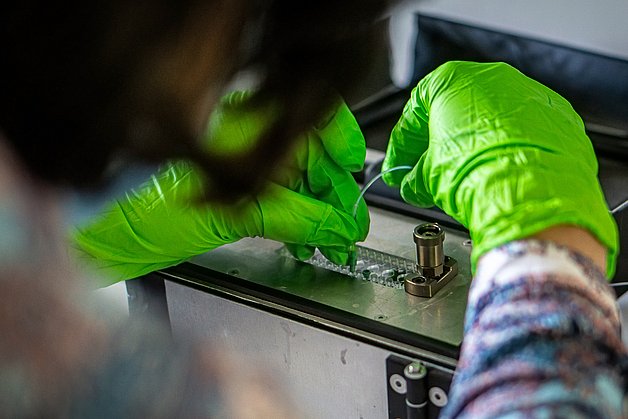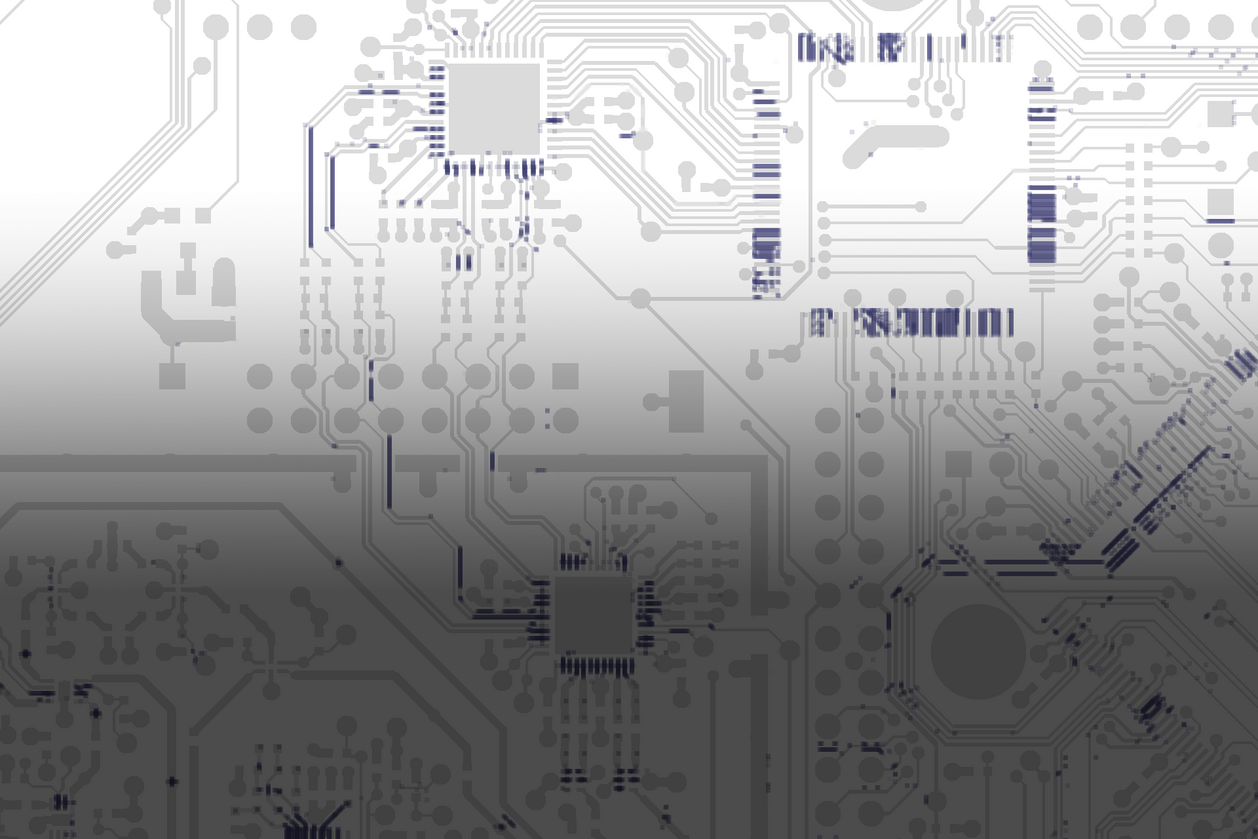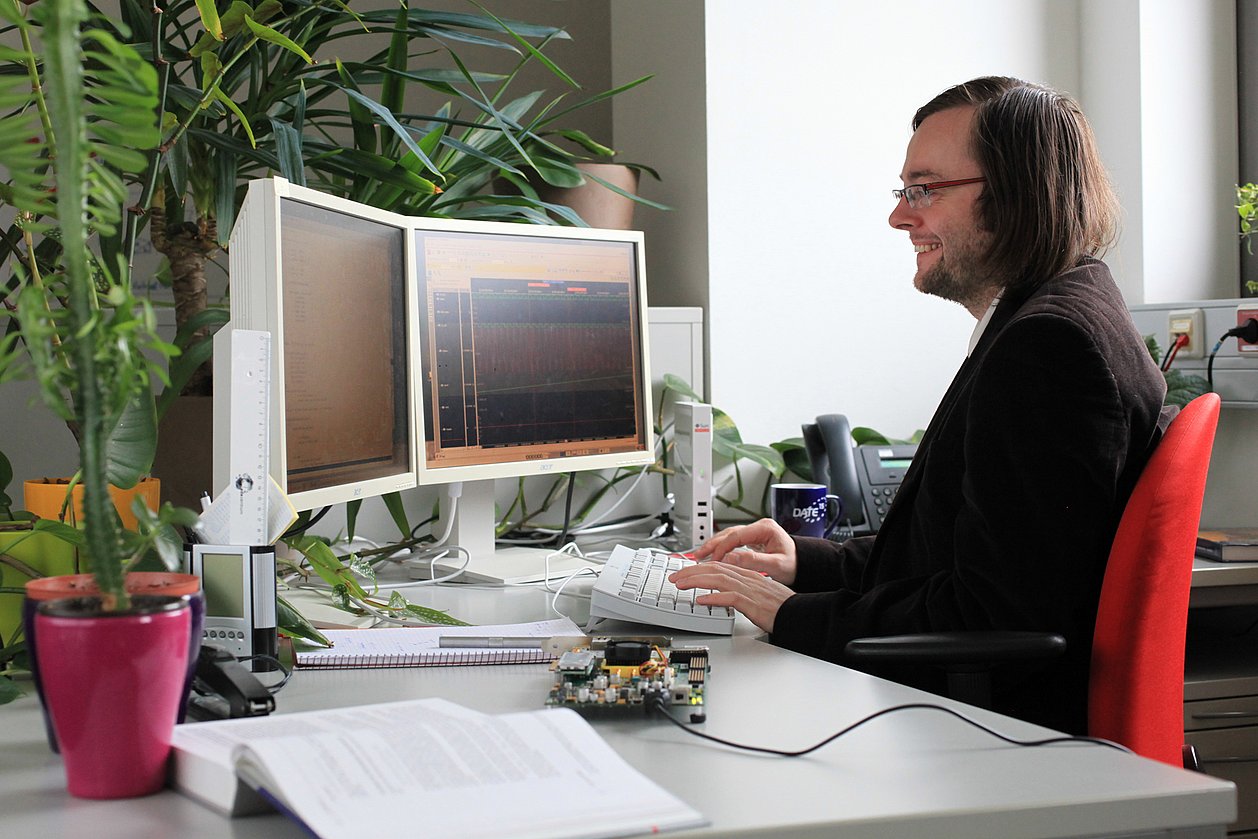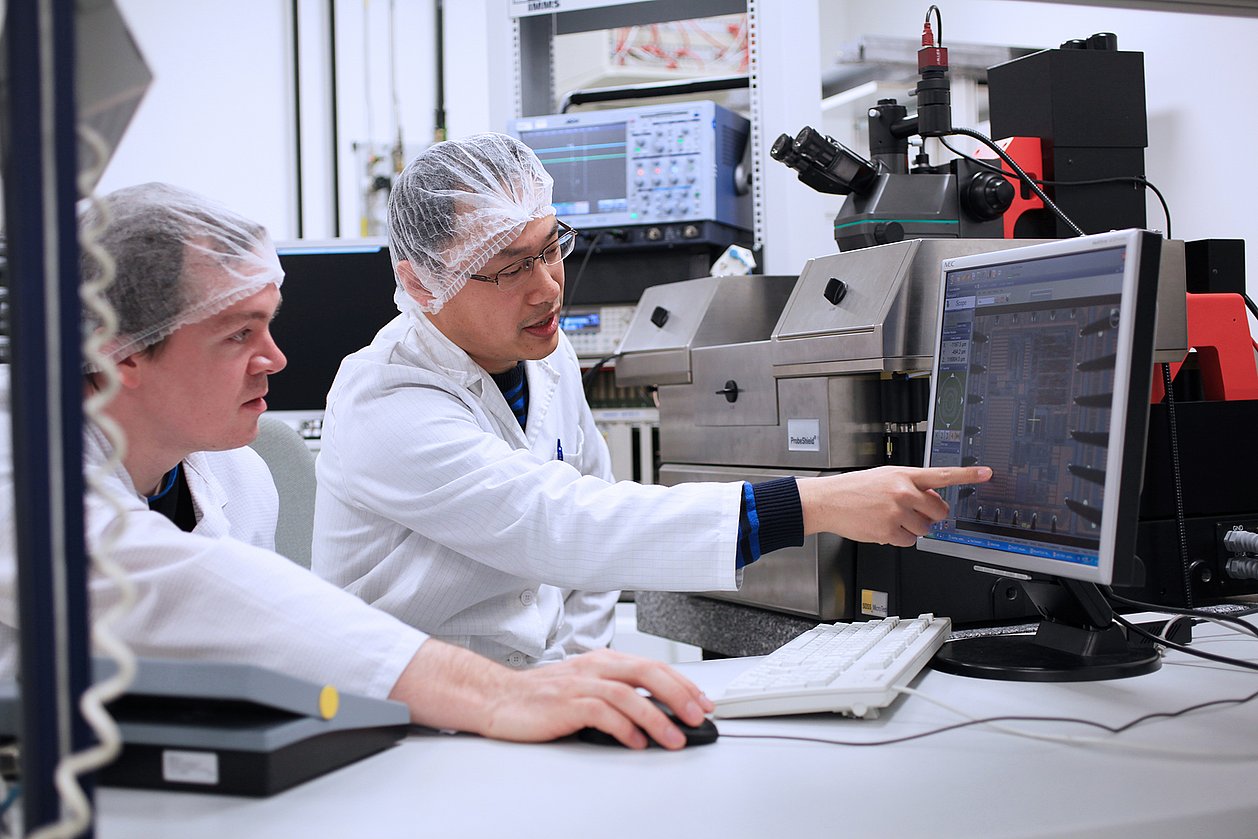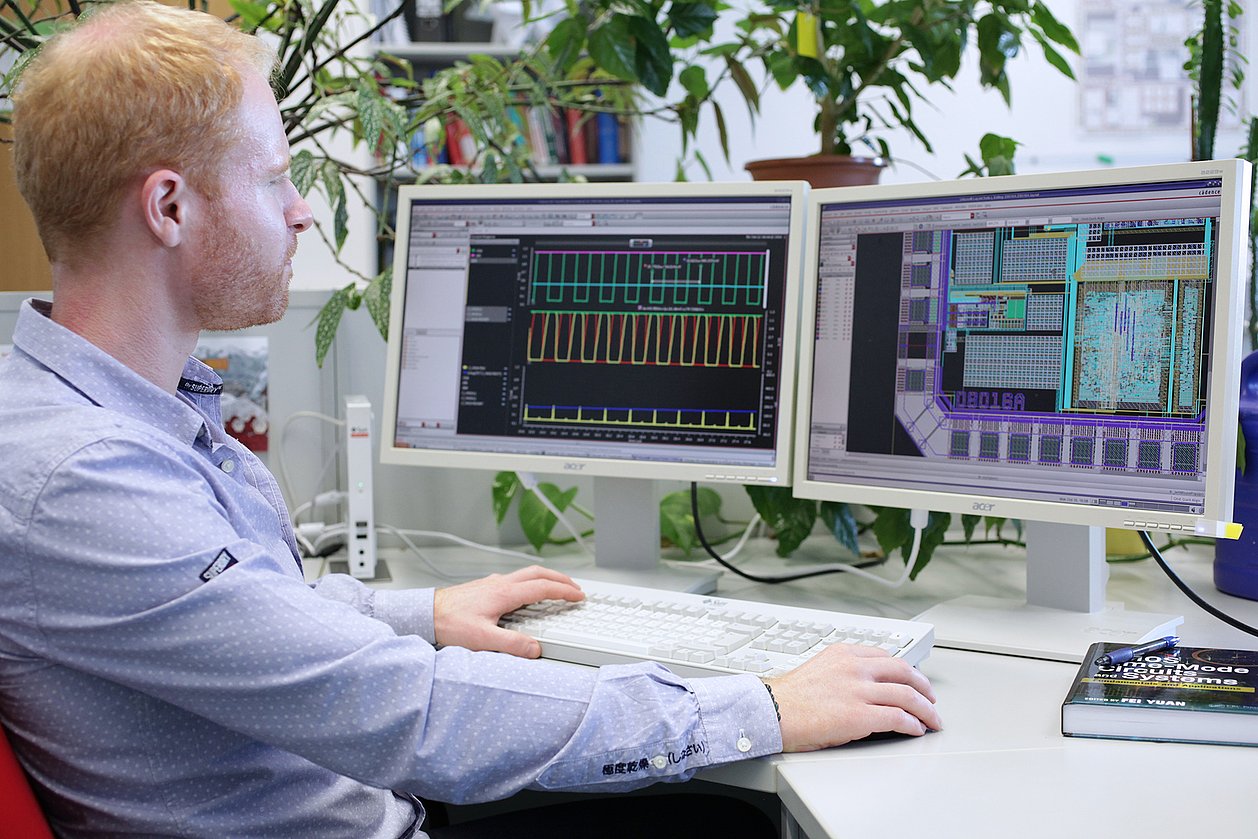Dr.-Ing. David Schreiber, scientist at IMMS
”I felt comfortable in the IMMS team from the very first moment. Everyone in the team is always willing to support each other with their respective specialist skills. From the outset, I was particularly impressed by how much energy is invested in promoting young talent and supporting students. Since most of the employees have followed this career path themselves, it is clear that it is worthwhile.“
”During my studies and my doctoral research, I often had the opportunity to interact with IMMS employees. We quickly discovered that we had common interests, especially in the field of electronic design automation. So, in 2022, I joined the IMMS microelectronics team at the Erfurt site. At that time, a new team was being formed with a focus on the verification of mixed-signal circuits. Thanks to my previous work in the field of analog circuit design automation and circuit simulation, I was quickly able to contribute valuable insights. Especially after my time in the university research environment, the high frequency of regular chip designs and their tape-outs was an exciting and welcome challenge.
The daily business at IMMS includes both research tasks in funded projects and industrial contracts. This combination provides a significant amount of innovative research activities in the field of chip design, from which industrial clients benefit directly. In my opinion, the team responsible for verifying these chips has the best view of the overall system in which the chips will later be used. At the same time, it is necessary to understand the system in detail. I see this activity as a kind of link between the various disciplines of chip design, such as system architecture, analog design, digital design and characterisation.
I felt comfortable in the IMMS team from the very first moment. Good communication and a relaxed working environment result in an efficient and fulfilling work culture. Everyone in the team is always willing to support each other with their respective specialist skills. From the outset, I was particularly impressed by how much energy is invested in promoting young talent and supporting students. Since most of the employees have followed this career path themselves, it is clear that it is worthwhile. Personally, I would choose this job again anytime.“


